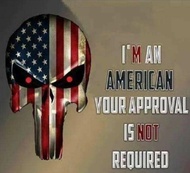
a. Special operations require unique modes of employment, tactics, techniques,
procedures, and equipment. They are often conducted in hostile, denied, or politically and/or
diplomatically sensitive environments, and are characterized by one or more of the
following: time-sensitivity, clandestine or covert nature, low visibility, work with or through
indigenous forces, greater requirements for regional orientation and cultural expertise, and a
higher degree of risk. Special operations provide JFCs and chiefs of mission (COMs) with
discrete, precise, and scalable options that can be synchronized with activities of other
interagency partners to achieve United States Government (USG) objectives. These
operations are designed in a culturally attuned manner to create both immediate and enduring
effects to help prevent and deter conflict or prevail in war. They assess and shape foreign
political and military environments unilaterally, or with host nations (HNs), multinational
partners, and indigenous populations. Although special operations can be conducted
independently, most are coordinated with conventional forces (CF), interagency partners,
and multinational partners, and may include work with indigenous, insurgent, or irregular
forces. Special operations may differ from conventional operations in degree of strategic,
physical, and political and/or diplomatic risk; operational techniques; modes of employment;
and dependence on intelligence and indigenous assets.d. Special operations are built on individuals and small units who apply special skills
with adaptability, improvisation, and innovation. Special operations normally require
precise tactical-level planning, detailed intelligence, and knowledge of the cultures and
languages of the operational areas. Rigorous training and mission rehearsals are integral to
the success of most special operations. Special operations conducted by small SOF units,
with unique capabilities and self-sufficiency (for short periods of time), provide the USG
with a wide array of military options. These options may generate less liability or risk of
escalation than are normally associated with employment of larger and more visible CF.
Foreign partners will at times be more willing to work with SOF due to their small
footprint in politically and/or diplomatically sensitive environments. Critical to the
evaluation and planning for future special operations is the review, and potential
employment of, joint lessons learned and best practices from previous operations.
Collection of joint lessons learned in accordance with (IAW) the Chairman of the Joint
Chiefs of Staff (CJCS) guidance promotes the availability of such information for SOF
consideration and decision making.
The Truth of what happened in Lebanon, see the video when you make it negative filter.
I uploaded this video specifically because Facebook and YouTube refuse to let us be able to keep it up and view it. God gave us all the gift of Discernment and we should have the right to decide for ourselves what to believe. I personally like this documentary very much. Thank you
Okay so I have begun to see email saying that this group is still gaining membership so if you are in, I am in. This means that any member that is ready for Truth 2.0! Anyone willing to understand that knowledge is power and education is key for survival in the future!! I will start off tomorrow and I promise you will not be disappointed by what I prove to you. Everything will be fact checked and confirmed. They hid the truth right in front of us, this is not hidden knowledge but open for anyone to see, but we don’t because we play video games and watch TV instead of paying attention!! but as Jesus said: they will have eyes and can not see and ears that can not here! SHEEP!!!
The difference of this group:
1. We need Shepherds to lead the sheep.
2. No wolves!! Wolves try to destroy the sheep that are helpless because “well they are sheep”
The shepherd is a warrior and a protector of the sheep, the shepherd will take on a Lion to protect his flock.
Anyone interested?












